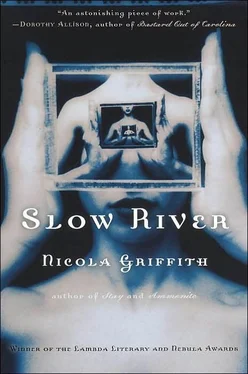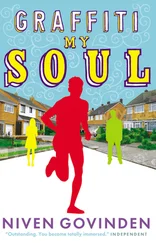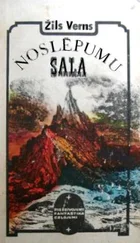I should have said I didn’t know, let her figure it out, but I didn’t know how long that would take, and I couldn’t bear to see a system fail due to simple ignorance. “No. Just the way people are using them. The highest concentration of airborne volatiles is at the center of the trough. Where the water is deepest.”
Magyar understood at once. “And those soft bastards don’t want to get wet.”
“You can’t blame them,” I said tiredly.
“Yes, I can.”
All of a sudden, I saw how young-looking that stretched skin was, how her anger covered vulnerability. She didn’t know what to do. I felt sorry for her. “If you wanted, I could probably come up with a formula to calculate the real concentrations, assuming they all go to about eight feet out.”
The muscles around Magyar’s eyes and mouth tightened even more. She looked as though maybe her ancestors had ridden horses on the Mongol steppes. “That won’t be necessary.” She looked at her watch. “I’ll talk to you about this later.”
Stupid. That was so stupid. Why was I risking myself like this?
I never much enjoyed the forty-five minutes midway through the night when, by law, the section took a break. I managed by being amiable and guarded to those I could not avoid, and then taking a chair out of the way, near the screen showing the tape loop of fish. Watching the endless play of light on water, the dance of angelfish and eel, was the only time I allowed myself to indulge in memories of the past. The tape reminded me of the reefs of Belize, where I had swum at fifteen. I could ignore the sweat and the stink as twenty-some people stripped their skinnies to the waist to free their hands to eat.
Usually I was left alone to eat the food I brought with me, while the rest of the shift complained about work, argued about the net channel, and played rough, incomprehensible practical jokes on each other. This time, Magyar was waiting for us.
“Turn that thing off,” she said. “You people get paid to do a job. I’m paid to make sure you do. Sometimes both our jobs are easier than others. Now is one of the hard times. I’ve been looking over the readings you’ve given me in the last two hours, and they’re no good.” There were groans and one or two angry protests. “Oh, be quiet. If you’d walked those extra few feet into the middle of the troughs as you were supposed to then I wouldn’t have to say all this.” She looked at them one by one. “I’ve requisitioned chest-highs instead of the thigh waders, but they won’t be available until tomorrow. I’ve also asked for hazard pay for the whole of this shift.” There were a few smiles at that. “Don’t get your hopes up. You know management.”
Now the smiles were knowing. I could not help admiring the way Magyar manipulated her audience.
“One more thing, people. From now until the program is back online, I’ll be checking readings personally, at random. Anyone who is more than five percent out will be fired on the spot. Now get back out there and do your job.”
The workload, which had been hard and dirty, became almost unbearable. When we stripped and showered at the end of the shift, there was a lot of muttering about taking sick days. I just kept my head down and tried not to think about the fact that I seemed to be the only one there who really knew anything about the system.
My dreams were bad that night. Long, tangled images of plastic sheets and blood, and lying on my stomach, face in a pillow, choking while whoever was on top of me humped up and down and breathed in my ear. I woke up drenched in sweat, tight and heavy with need.
I knew if I tried to do something about that need it would fade away into mocking memories of Spanner holding up the vial of oily drug and laughing.
I got to work a few minutes early. The computer was still down but there had been no emergencies during the afternoon.
When we were dressing for the shift, Magyar and two new men came into the locker room. One was wizened and bowlegged but seemed spry enough. He flashed a grin at the shift. The other one was just a teenager, with jet black hair and brown eyes. Something about the way he held himself, a strange mix of ramrod back and careless limbs, bothered me.
“This is Nathan Meisener”—the older man nodded—“and Paolo Cruz. I made Hepple pull his finger out on those vacancies. I thought you might appreciate the help.”
There were one or two laughs but I wanted to yell at everyone: You think two extra people will make a difference if a fireball rips through here? Kinnis slapped Meisener on the back and Cel called out, “Hope you can swim,” as she pulled on her waders.
“Right, people. Time to get to work.” They began to file past Magyar. For all her apparent joviality, I could tell by the flush in her cheeks and line of her jaw that she was angry about something. Magyar pulled aside Kinnis and then me before we could walk past. “Kinnis, you take Meisener here. He has some experience, but it was a while back.” She watched as Meisener followed Kinnis down the corridor. I could feel the other one, the teenager, looking at me. “Cruz, you’ll be following Bird around for a day or two. She knows a lot more about the way things work around here than you might think.”
It was impossible to miss the bite behind those words. I did not like that. Was she suspicious enough yet to backcheck Bird’s records? As if I didn’t have enough to worry about.
I shepherded the new man ahead of me and felt Magyar’s hard, bright eyes boring into my back all the way down the corridor. Paolo, though he must have noticed, said nothing.
During the next couple of hours, as I showed him the ropes, pointed out that his back support had the over-shoulder cross straps for a reason, he hardly spoke at all. Something about him still bothered me. I watched him as he walked out into the trough, PD held at waist level.
“Not the talkative type, is he?” Cel said from behind me.
No.”
“Not like that Meisener. Talking a mile a minute.” She lifted the PD she was holding. “How do you reset these things again?” I showed her. Cel clipped the PD to her belt, then nodded at Paolo, waist-deep in the water. “Let me know if you need me to take him off your hands for a while.”
I was surprised at her friendliness. “Thanks. I might.”
“New ones are always a pain.” She looked at me assessingly. “Usually, anyhow.” She waved, and moved off back to her own troughs. I returned my attention to Paolo.
Water sloshed as he strode another couple of feet deeper. I had watched several people taking their readings by now, and the one thing they all had in common was the gingerly way they walked through the polluted wastes. I did it myself. It was not just the possibility of overbalancing; you never knew what you were about to step on, or through. It was hard not to imagine the floating feces or lumps of glutinous matter, the variety of things, organic and nonorganic, that people flushed down their toilets or that wriggled their own way through the municipal drains. It did not matter that your legs were protected by a double layer of polyurethane and plasthene; you could still feel the slimy things that bumped against you.
Paolo waded to the edge of the trough, seemingly unconcerned by what he might be treading on. He held out the PD. I waved it away. “Just read them out, it’s quicker.”
He did. Every fourth or fifth word, I caught an accent; not the softened consonants of Castilian, or the nasal vowels of Central American Spanish. Something else. Like the way he waded through the foul water unconcerned, it felt as though it should be familiar, and it bothered me. I shook my head at my own imagination.
“You want me to stop?” He was looking at me. anxiously.
Читать дальше












